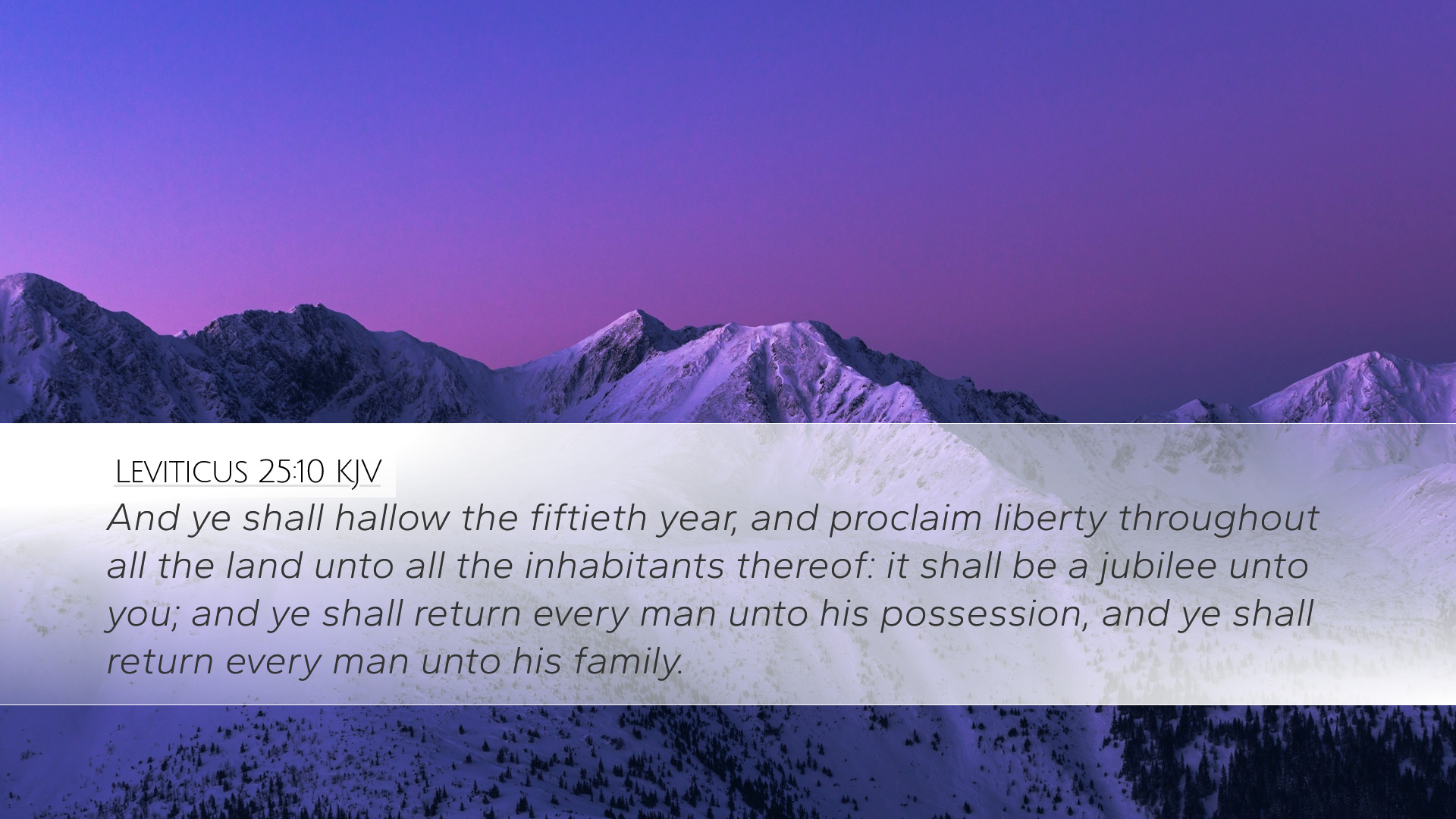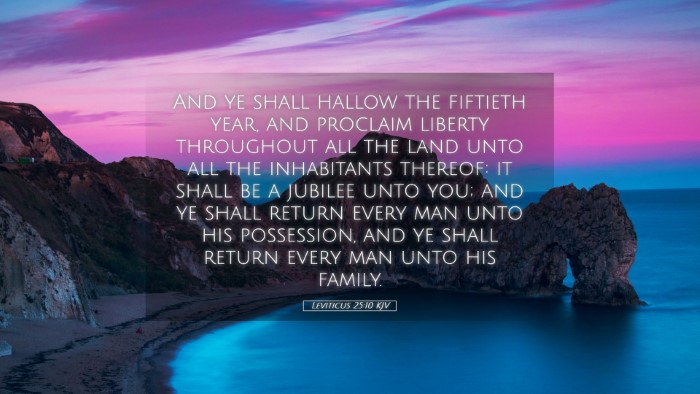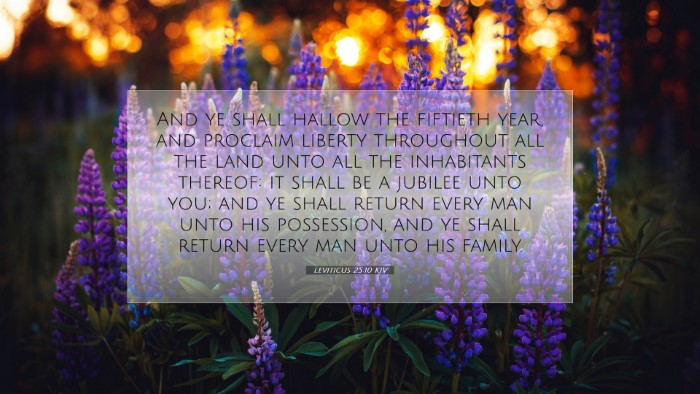Commentary on Leviticus 25:10
Leviticus 25:10 states: “And ye shall hallow the fiftieth year, and proclaim liberty throughout all the land unto all the inhabitants thereof: it shall be a jubilee unto you; and ye shall return every man unto his possession, and ye shall return every man unto his family.”
Introduction
The verse stands as a proclamation of liberation and restitution within the stipulations of ancient Israelite law. It marks the culmination of the sabbatical cycles and introduces a unique period of grace and restoration for the people of Israel. This commentary synthesizes insights from various public domain commentaries, highlighting theological implications, historical context, and practical applications.
The Context of Jubilee
The jubilee year, appearing every fiftieth year, was first introduced in Leviticus 25. Matthew Henry emphasizes that this cycle of years was meant to provide a divine reset for both individuals and the community at large. The essence of jubilee lies in the themes of:
- Restoration: Each member of the community would return to their ancestral lands, symbolizing a divinely ordained reset.
- Liberty: The proclamation of liberty underscores the deliverance from economic oppression and slavery.
- Spiritual significance: It denotes a time of renewed relationship with God, emphasizing dependence on divine provision.
According to Adam Clarke, the jubilee is a vital aspect of God's provision not only for land but also for human dignity and economic justice. In the jubilee year, debts were forgiven, and slaves were freed, reminding the Israelites of their own liberation from Egypt.
The Year of Hallowing
Henry notes that the command to "hallow" the fiftieth year infers that this time should be set apart as sacred. It wasn't merely an economic reset; it was also a spiritual one. God intended for the jubilee year to be a time of reflection on His provision and grace.
Clarke also points out that this hallowing indicates a time of rest for the land itself, reminding the Israelites of their stewardship over creation: “six years thou shalt sow thy field, and six years thou shalt prune thy vineyard; but in the seventh year shall be a sabbath of rest unto the land.” (Leviticus 25:3-4).
Proclaiming Liberty
The act of proclaiming liberty throughout the land highlights the active steps needed to ensure that the jubilee's truths are recognized and understood. Barnes observes that this proclamation served to awaken the people to their responsibilities towards one another. It was not enough to merely observe the year; it had to be declared widely so that everyone would participate in its blessings.
This proclamation of liberty also relates to Jesus’ mission, where He declared in Luke 4:18, “The Spirit of the Lord is upon me...to proclaim liberty to the captives.” The connection between the jubilee and Christ's mission further illustrates God’s continuous plan for humanity’s restoration and freedom.
Returning to Possessions
As every man returns to his possessions, it represents a more profound theological truth concerning identity and God’s covenant. Henry suggests that this returning also symbolizes how God's people are always called back to Him, despite their waywardness.
Barnes stresses the moral imperative to maintain equity. The restoration of property was not merely an economic transaction but a directive to maintain justice and compassion. The land belonged to God, and the Israelites were stewards of His gifts.
Implications for Today
For contemporary pastors and theologians, Leviticus 25:10 offers several significant lessons:
- Justice and Equity: The jubilee principle speaks to issues of economic disparity and the social responsibility of believers to advocate for justice.
- Theological Reflection: Understanding the jubilee helps to shape Christian doctrine regarding God's provision and the nature of salvation as a restoring act.
- Community and Belonging: The call for everyone to return to their family emphasizes God’s design for community—each person holds a vital role in the divine narrative.
- Spiritual Renewal: The practice of setting aside time for rest and reflection is relevant for modern Christian life, calling for periodic renewal in God’s presence.
Conclusion
Leviticus 25:10 encapsulates profound themes of restoration, justice, and divine grace. The rich insights drawn from the commentaries of Matthew Henry, Albert Barnes, and Adam Clarke remind us of God's ongoing commitment to redeem, restore, and reclaim His creation. As believers seek to embody the spirit of jubilee, they participate in God's greater narrative of love, justice, and redemption.


